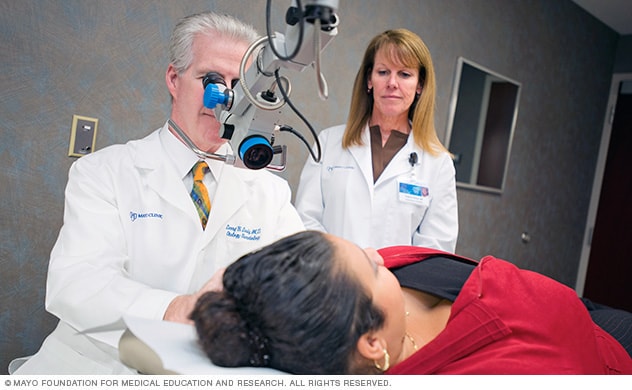Discovering the Field of Otolaryngology: What to Expect When You Get In Touch With an ENT
Otolaryngology, commonly referred to as ENT, incorporates the medical diagnosis and therapy of ear, throat, and nose disorders. For those experiencing associated problems, consulting an ENT expert can provide quality and relief. Recognizing what to expect throughout such assessments is important for effective communication and treatment. This summary will outline vital aspects of the ENT experience, consisting of typical reasons for visits and the processes associated with medical diagnosis and treatment.

Understanding Otolaryngology: An Overview
Otolaryngology, typically referred to as ENT (Nose, ear, and throat) medicine, is a customized branch of medicine that concentrates on the diagnosis and treatment of problems impacting these vital areas of the human body. This field includes a wide variety of disorders, consisting of those relevant to hearing, balance, respiratory system function, and speech. Otolaryngologists are educated to handle both surgical and clinical therapies, making use of innovative strategies and modern technologies. Their experience prolongs past conventional ailments, addressing concerns such as allergic reactions, sinus infections, and hearing loss. Furthermore, they play a crucial duty in the monitoring of head and neck cancers, offering comprehensive treatment tailored to specific client requirements. Generally, otolaryngology continues to be vital for keeping health and wellness and lifestyle in damaged people.
Typical Reasons to See an ENT Specialist
Numerous people look for the proficiency of an ENT specialist for a variety of factors, mirroring the diverse nature of conditions that affect the ear, nose, and throat. Typical problems include persistent sinusitis, which usually causes consistent nasal congestion and facial discomfort. Allergies and their linked symptoms, such as sneezing and itching, also prompt sees to these professionals (Hearing). Hearing loss, whether abrupt or gradual, is one more considerable reason for assessment. On top of that, individuals may seek assessment for throat disorders, consisting of relentless hoarseness or ingesting problems. Rest apnea, characterized by disrupted breathing throughout rest, is frequently addressed by ENT professionals. Each of these conditions highlights the importance of specialized care in taking care of complicated ENT-related health problems
Planning for Your ENT Visit
When getting ready for an ENT consultation, it is important to gather relevant information and take into consideration any kind of certain problems. People should compile an in-depth case history, consisting of previous ear, nose, or throat problems, surgical procedures, and present medications. Documenting symptoms-- such as frequency, duration, and intensity-- can offer beneficial understandings for the ENT expert. Furthermore, individuals need to prepare a checklist of concerns they want to ask, ensuring that all problems are addressed throughout the browse through. Bringing along any kind of relevant clinical documents or test results can further help the ENT in comprehending the person's problem. Finally, people must verify their appointment information, consisting of time, location, and date, to minimize any kind of final complication. Correct prep work can enhance the performance of the consultation and cause far better end results.
What to Expect Throughout the Examination
As the consultation begins, the person can expect to take part in a detailed conversation with the ENT professional about their signs and case history. The specialist will certainly ask regarding the duration, frequency, and severity of signs such as hearing loss, nasal blockage, or sore throat. In addition, the client's previous medical problems, medications, and any pertinent household history will be evaluated, assisting the specialist in developing a full understanding of the individual's health. Check Out Your URL The ENT might also inquire about way of life variables, such as direct exposure to irritants or toxic irritants. This open discussion establishes a structure for the appointment, making certain that the client's problems are resolved and establishing the stage for any kind of essential evaluations or referrals for therapy.
Analysis Tests and Treatments in Otolaryngology
A series of diagnostic tests and treatments are essential in otolaryngology to properly review and detect problems influencing the ear, throat, and nose. Typical tests include audiometry, which gauges hearing function, and tympanometry, evaluating center ear pressure. Nasal endoscopy enables visualization of the nasal passages and sinuses, while laryngoscopy examines the throat and vocal cables. Imaging methods, such as CT scans and MRIs, supply comprehensive sights of head and neck structures. Allergy testing may additionally be performed to recognize triggers for sinus or respiratory system issues. These analysis devices allow ENT professionals to develop a thorough understanding of patients' conditions, guaranteeing tailored and efficient administration strategies. Appropriate diagnosis is important for successful therapy results in otolaryngology.
Treatment Alternatives Used by ENT Specialists
ENT experts provide a variety of therapy options customized to deal with specific problems impacting the throat, nose, and ear. These therapies range from conservative techniques, such as medication and way of living modifications, to more intrusive procedures. As an example, allergies might be handled with antihistamines or immunotherapy, while chronic sinusitis might call for nasal corticosteroids or sinus surgical procedure. For hearing loss, ENT specialists often recommend hearing aids or surgical treatments like cochlear implants. In instances of throat disorders, alternatives can consist of speech therapy or medical procedures to remove obstructions. In addition, they may offer support for handling rest apnea, including making use of CPAP tools or surgical interventions. In general, the goal is to boost individuals' lifestyle via personalized treatment and efficient therapy strategies.
When to Seek Follow-Up Treatment With an ENT
Recognizing when to look for follow-up treatment with an ENT specialist is vital for taking care of ongoing signs or difficulties related to throat, nose, and ear problems. Clients must think about scheduling go to my site a follow-up consultation if signs and symptoms continue despite preliminary therapy, such as persistent ear discomfort, nasal congestion, or throat discomfort. Modifications in hearing, balance issues, or unusual nasal discharge might also call for further assessment. Furthermore, if an individual experiences adverse effects from suggested medications or has gone through an operation, follow-up treatment is vital to check recovery and resolve any kind of worries. Timely assessments can guarantee effective administration of conditions, avoid prospective difficulties, and supply assurance concerning one's wellness. Looking for follow-up care advertises aggressive health management in otolaryngology.
Frequently Asked Questions

What Credentials Should I Try to find in an ENT Expert?
When seeking an ENT expert, one ought to search for board qualification, pertinent experience, and solid patient evaluations. Additionally, reliable communication abilities and a thoughtful approach can greatly enhance the general treatment experience.
How Do I Pick the Right ENT for My Needs?
Picking the appropriate ENT specialist entails evaluating their qualifications, experience, and individual reviews (Otolaryngology). It is necessary to contemplate their interaction design and approach to treatment, ensuring they straighten with the person's specific health and wellness requirements and choices
Are There Any Kind Of Threats Connected With ENT Procedures?
The threats connected with ENT treatments might consist of infection, blood loss, anesthetic difficulties, and possible damages to bordering frameworks. Clients must review these threats with their physician to understand individual issues and assurance educated decisions.
Just How Can I Take Care Of Anxiety Before My ENT Appointment?
To handle anxiousness prior to a visit, individuals can exercise deep breathing workouts, imagine positive results, prepare concerns beforehand, and seek assistance from close friends or family, fostering a sense of peace of mind and peace.
What Should I Do if I Experience Adverse Effects From Treatment?
The person must promptly report them to their medical care provider if side effects from treatment take place. Modifications to treatment or additional interventions may be needed to guarantee security and performance in managing their problem - Otolaryngologist. As the assessment begins, the person can anticipate to involve in a detailed discussion with the ENT specialist regarding their signs and medical history. These diagnostic devices allow ENT experts to develop a detailed understanding of patients' problems, guaranteeing customized and reliable administration plans. ENT experts supply a range check out here of treatment options tailored to attend to details problems influencing the nose, throat, and ear. When seeking an ENT professional, one ought to look for board qualification, relevant experience, and solid client testimonials. Choosing the best ENT expert entails assessing their certifications, experience, and client evaluations
Comments on “Otolaryngology Explained: What Patients Should Know”